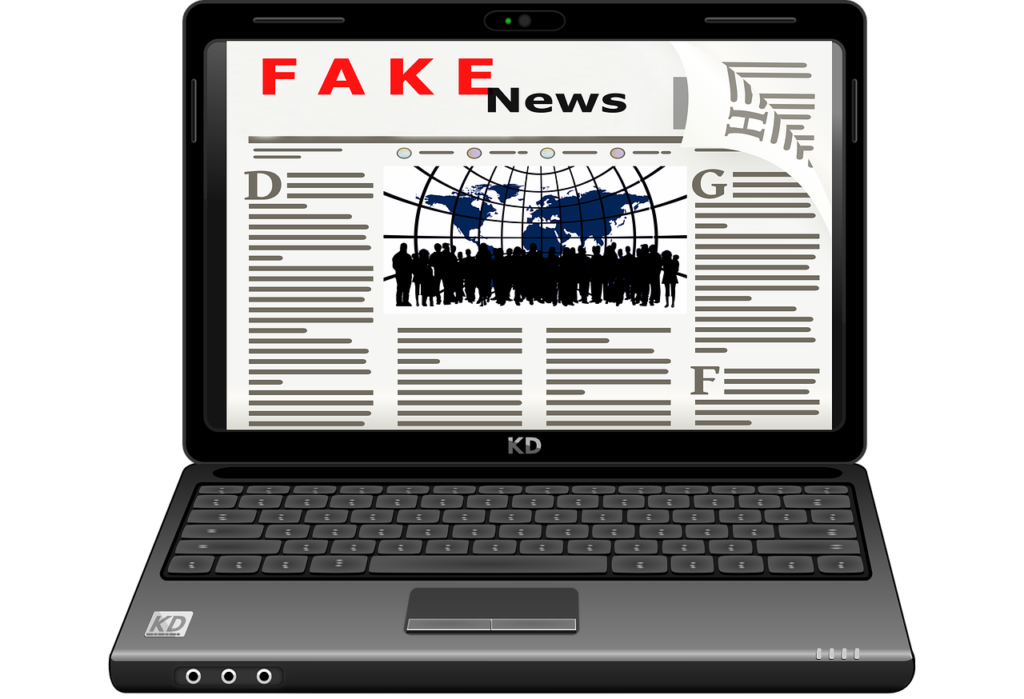Fake news is a misleading or deceptive information deliberately created to manipulate opinions, generate clicks, or confuse the public. It can take different forms such as: news articles, decontextualized information, videos, manipulated images, or memes. Fake news is often spread quickly on social media, where it can reach a wide audience before it is even cross-referenced. In addition to confusing the masses, fake news has potentially harmful consequences. It can influence elections, polarize public opinion, create distrust in public institutions, and even incite violence and hostility.

A common currency in the digital age, ‘fake news’ is considered to be the modern-day evil. It spreads quickly through social media and online platforms, sparking fear and confusion and undermining trust in traditional media. Moreover, it can damage the reputation of individuals or organizations targeted by disinformation, while creating a climate of widespread confusion and skepticism. One of the biggest examples that can be presented are imposter sites, which are websites that are designed to look like a real or credible website while spreading misinformation about a certain topic. With the spread of this occurrence, it became easy to influence others’ perceptions of whether information is real or not. This kind of manipulation has become so common that one is susceptible to it in their everyday lives and not only on social media. While some people are more likely to distrust any source of information they come across until it is verified, this does not stop others from believing any piece of media that gets fed to them without verifying it, which most likely contains misinformation.
Additionally, misinformation or fake news does not spread only on social media, it is a problem in the real world too. Many individuals, whether conscious or not, participate in sharing it amongst themselves, with their friends, families, colleagues, etc. At the national level, the EESC (Economic, Social and Environmental Council) states that 93% of Moroccans say they are victims of fake news, and more than 51% said they unconsciously participated in the spread of this false information by sharing it on social networks and with their loved ones. Nevertheless, the prime drive for believing fake news must be one’s own desire to confirm their existing beliefs. Most people seek information that correlates with what they want to believe rather than what is true to feel at ease. While other people do not like to be proven wrong, therefore if they find any kind of information which supports their argument, they use it to their advantage indifferent if it is false or not. This kind of behavior seriously endangers the society and makes people more vulnerable to fake news or misinformation. Hence, the truth will lose all meaning in the generation to come, especially considering how people take advantage of fake news and exploit it for their own ends.
Nonetheless, fake news can be countered, measures can be taken to stop it or at least minimize it to a point where it does not jeopardize the reputation of others, because fighting this epidemic is a collective responsibility. Most major news agencies and international media outlets have a “fact-checking” service that is available for free to the general public, to make citizens aware of their responsibility to access and share information. There are other ways to check for fake news, and media literacy is one of them. This, of course, does not mean just the ability to read and interpret news but also the ability to critically analyze in order to spot any inconsistencies and lies as well as read between the lines. Another measure is to always check the source of the information and focus on highly acclaimed websites that keep their news consistent and balanced. Lastly, always check on the author of the piece to see if it is a known name, a famous journalist, or a name that was never mentioned before or even seen in an article. Fake news is a harsh phenomenon, with the advent of social media and the virality of news that promotes its rapid and uncontrolled spread making it inevitable. Misinformation is bound to happen in this age of technology and modernity, it is something that is widely used to one’s advantage. People will use it if it gets them where they want, but that does not mean it should stay that way, as there are ways to prevent fake news from spreading. It is crucial to remember that without fact checking the news, one could be a subject of manipulation, helping spread misinformation and widening the horizons of those influenced by fake news.